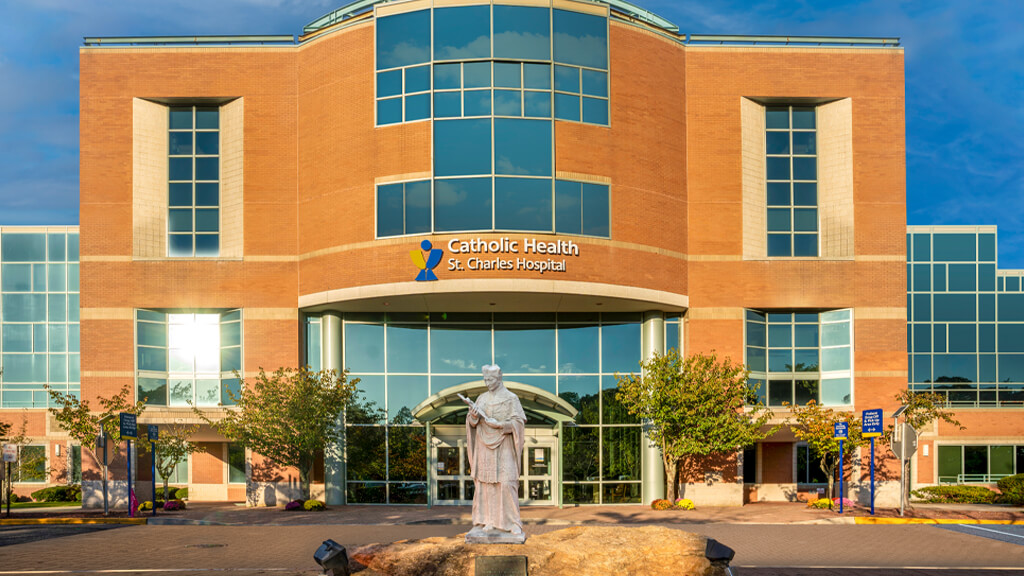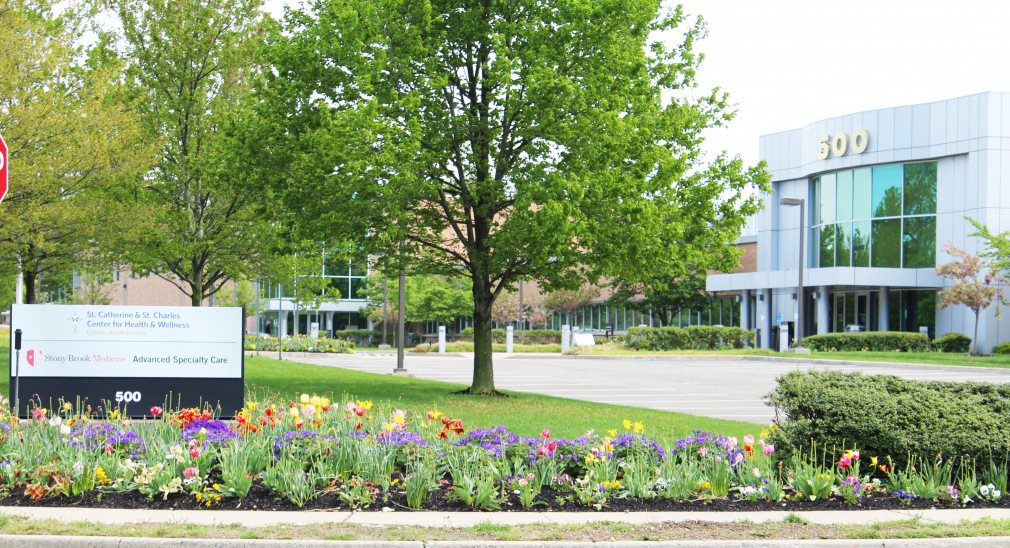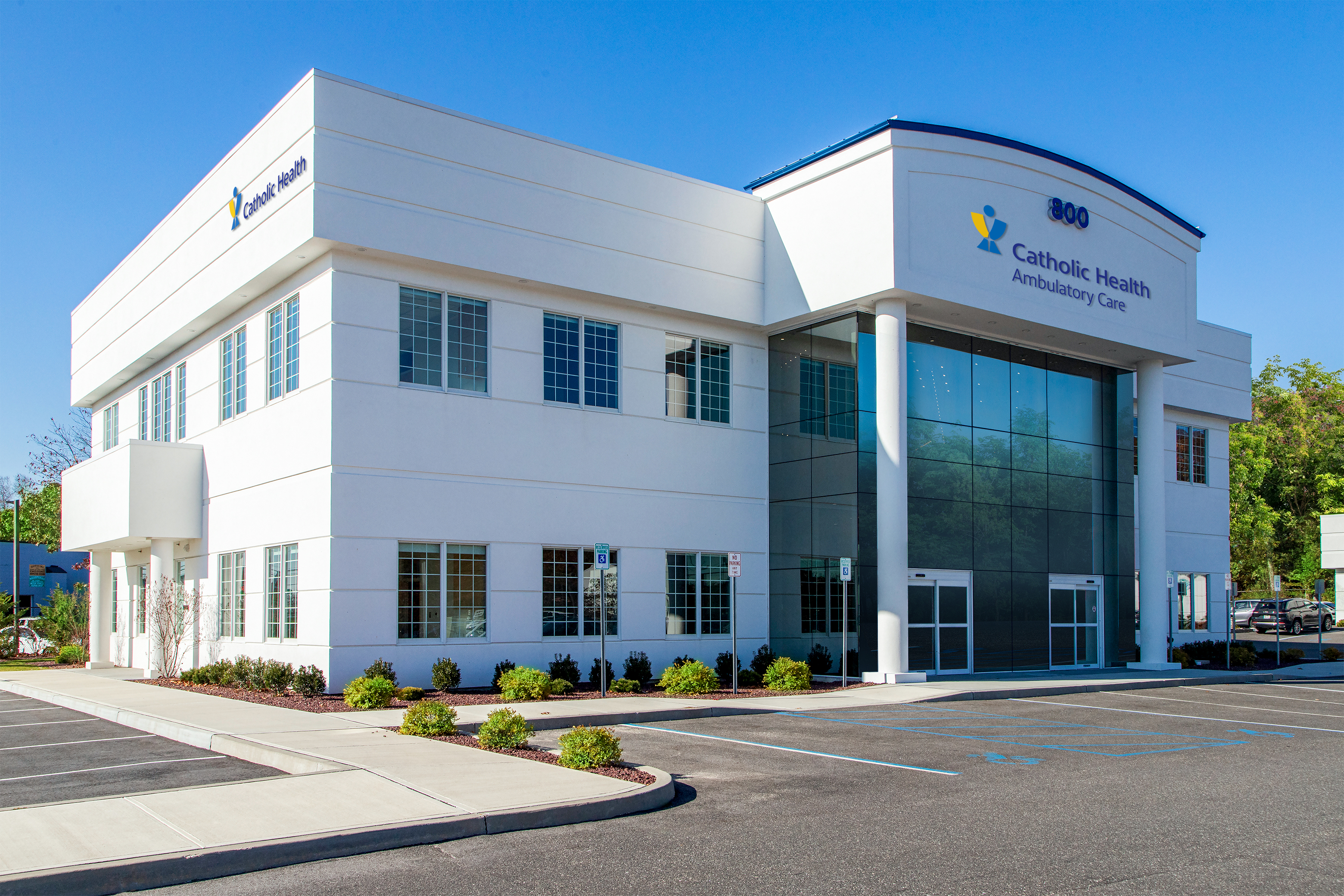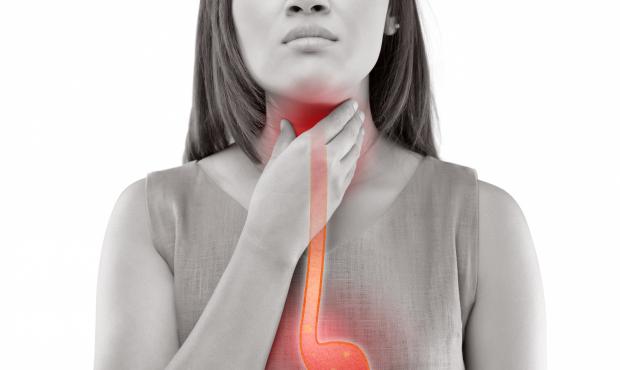Innovative Treatment for Reflux Disease
Patients with chronic heartburn and gastroesophageal reflux disease (GERD) are commonly prescribed medications that have long-term side effects. At Catholic Health, our Acid Reflux Program offers minimally invasive surgeries that give patients a permanent solution to treat reflux rather than stay on lifelong medication treatment. We also offer surgical options for hiatal hernias.
What Is Heartburn and Reflux Disease?
Heartburn and gastroesophageal reflux disease (GERD) is a common chronic condition. Acid from the stomach flows back into the esophagus because of a malfunctioning esophageal sphincter—the muscular valve that closes after food enters the stomach.
Common symptoms include:
- Acid reflux
- Heartburn
- Nausea
- Persistent regurgitation
- Difficulty swallowing
- Chronic cough
- Chest pain
Proton pump inhibitors (PPIs) are commonly prescribed to patients with GERD. Over time, these medications can cause side effects such as osteoporosis and electrolyte abnormalities.
Minimally invasive anti-reflux surgery procedures are available as a permanent solution for acid reflux for patients who:
- Continue to have regurgitation while taking prescription medication.
- Experience side effects from medications.
- Do not want to remain on medications for the rest of their life.
- Are concerned about long-term side effects.
Surgical Options for GERD
Minimally invasive anti-reflux surgery procedures are available as a permanent solution for acid reflux.
A laparoscopic, robotic-assisted surgery where the upper part of the stomach is wrapped around the food tube to create a new valve. The procedure typically takes one hour.
A minimally invasive procedure that eliminates reflux and regurgitation.
During a BARRX procedure, an instrument is inserted into the esophagus to burn off the diseased layer of the esophagus so healthy cells grow back.
This minimally invasive procedure inserts a magnetic ring into the lower esophagus to create a new sphincter. A small, flexible band of magnetic beads, about the size of a quarter, is wrapped around where the stomach and esophagus meet. Once implanted, the magnetic band opens when a patient swallows food and closes to prevent stomach acids from flowing back into the esophagus. The same-day procedure typically takes less than one hour.
St. Charles Hospital offers High-Resolution Esophageal Manometry, which can help detect esophageal motility disorders such as achalasia and nutcracker esophagus.
Acid Reflux Program Locations

St. Charles Hospital
Port Jefferson, NY Hospital

Catholic Health Ambulatory Care at Commack
Commack, NY Ambulatory Care

Catholic Health Ambulatory Care at Riverhead
Riverhead, NY Ambulatory Care

